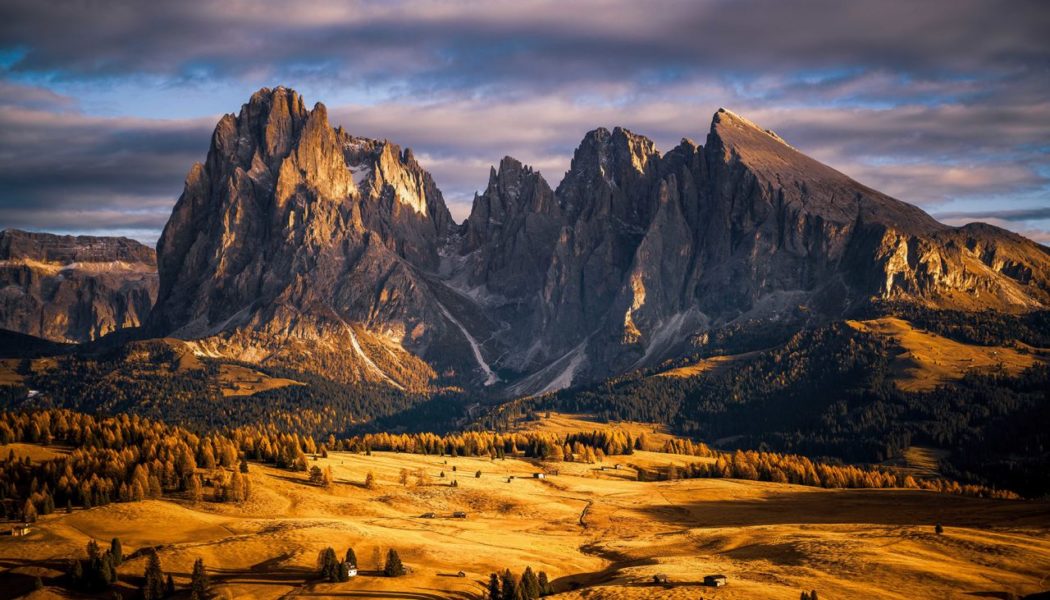It was the summer where everyone went to Europe. And now it’s fall, when the continent really comes into its own as the leaves – and visitor numbers – start to drop.
A recent report from luxury travel network Virtuoso named Paris, London and Florence as the most booked cities for fall travel. But other destinations often overlooked by Americans during the autumn months offer the opportunity to escape the crowds and live something seasonal and exceptional.
“Fall is one of the best times to visit Europe because of the vast variety of interests [the season] can cater to,” says Mina Agnos, president of luxury travel company Travelive.
Beaches and temperatures remain warm for travelers looking for beach time in classic destinations in Spain, Portugal and Turkey, she says. And foodies get their fill at the intersection of fall festivals and harvest time across Europe – from truffle-hunting in Croatia, and hitting the olive harvest in Greece, to drinking at vineyard festivals in Sicily. Fall is also ideal for more active trips, says Agnos, whether that’s hiking in Spain and chestnut-foraging in Slovenia, or watching raptor and stork migrations around the Strait of Gibraltar.
Also consider island escapes. Places like Tenerife, Ibiza and Mallorca are packed in summer but mellow out come autumn.
“The Canary islands have always been great from mid-September to mid-December when there are good flight options and fewer crowds, making for a more relaxed travel experience,” says Brian Young, EMEA managing director at G Adventures. Consider relaxing on the golden beaches of Gran Canaria or trying something more active like a hiking and wine-tasting tour in Tenerife for an ideal October trip.
If you’re ready for a different take on Europe this fall, we’ve got ideas.
Alentejo, Portugal
The Douro Valley, known for the production of port wine, is the obvious autumn choice in Portugal. But head instead to the Alentejo region, Portugal’s rural heartland. Here, you can see Roman remains in its UNESCO-protected capital Évora, road trip through peaceful countryside planted with cork trees and olive groves, and enjoy the wild coast.
“The conserved Atlantic coastline offers miles of unspoiled beaches and is popular for surfing, with the best waves from autumn to spring,” says Sérgio Duarte, general manager of Octant Évora, a hotel set on 30 acres just outside of town which offers autumn activities like hot air balloon rides, stargazing and picnics in the plains.
“What I personally enjoy in autumn is how the golden light reflects off the cornfields inviting you to contemplate and be still after the busy summer season,” he says.
Val Gardena, Dolomites, Italy
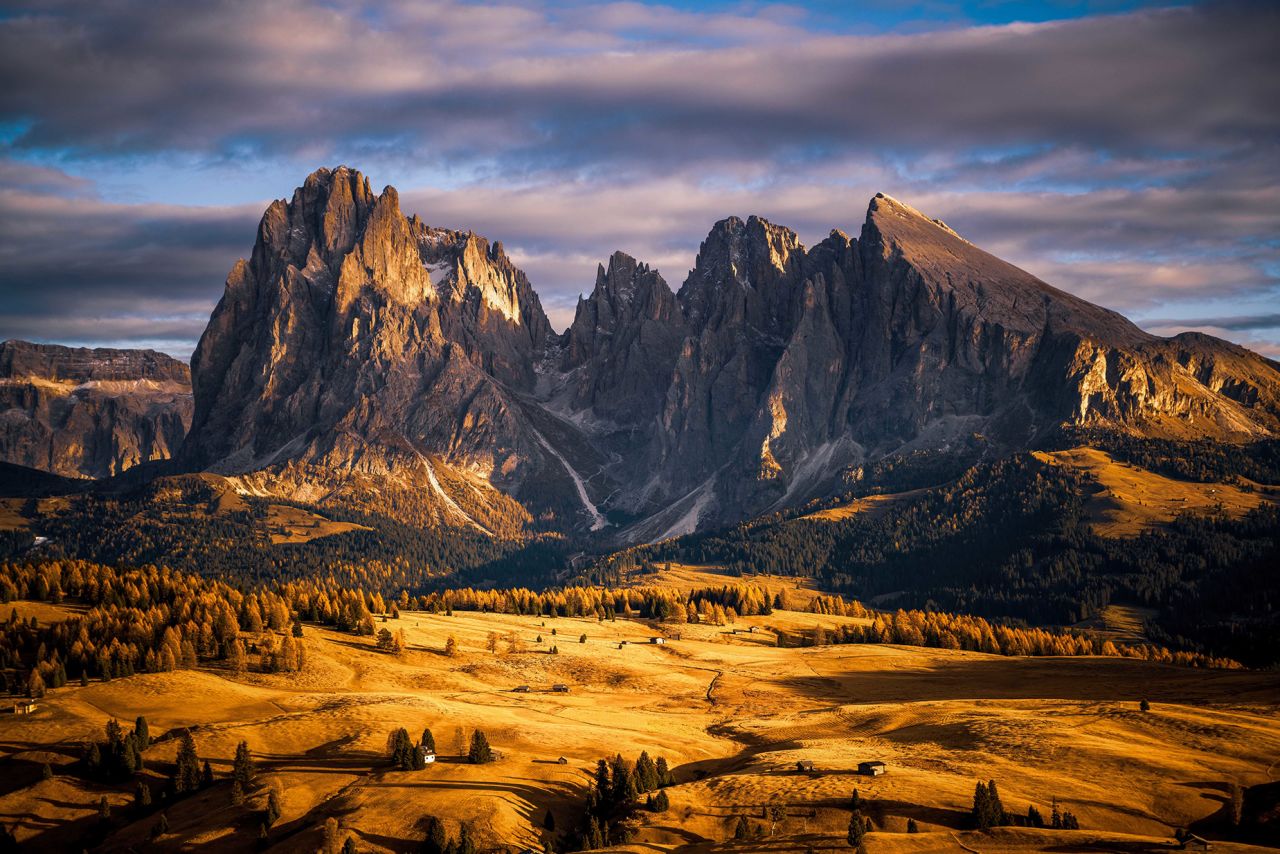
During fall in the Dolomite mountains of Northern Italy, the changing leaves compete with the enrosadira – the alpenglow – as the setting sun hits the mountains at just the right angle, causing them to glow pink.
It’s an all-out feast for the senses in Val Gardena, whether you’re hiking mountain trails within the UNESCO World Heritage landscapes of Puez-Odle National Park, or tucking into South Tyrolean fare and the local Ladin cuisine during a three-week food festival, Culinarium Urtijei, in the village of Ortisei.
Surrounded by parkland in Ortisei, a stay at ADLER Spa Resort Dolomiti lets you explore the area on electric bikes and enjoy the resort’s wellness offerings – saunas, salt grottoes and an outdoor pool – in the brisk autumn air.
Romania
Spending Halloween at “Dracula’s castle” is just one of the reasons to consider visiting Romania in autumn says Christopher Hill of Hands Up Holidays, which offers volunteer trips that might see you helping conservation efforts with rescued bears in Brasov or dancing alongside local shepherds during a Transylvanian dairy festival.
In addition to autumn’s changing leaves, the season ushers in all kinds of foodie events. “Fresh produce is in abundance and many villages preserve the tradition of celebrating the harvest with local festivals to recognize the local and what they have produced – mostly apples, pears, pumpkins and grapes,” says Hill.
He points to October’s chestnut celebration in Baia Mare and a cabbage festival in the Saxon village of Moșna among Romania’s fall foodie events to plan a trip around.
Mallorca, Spain
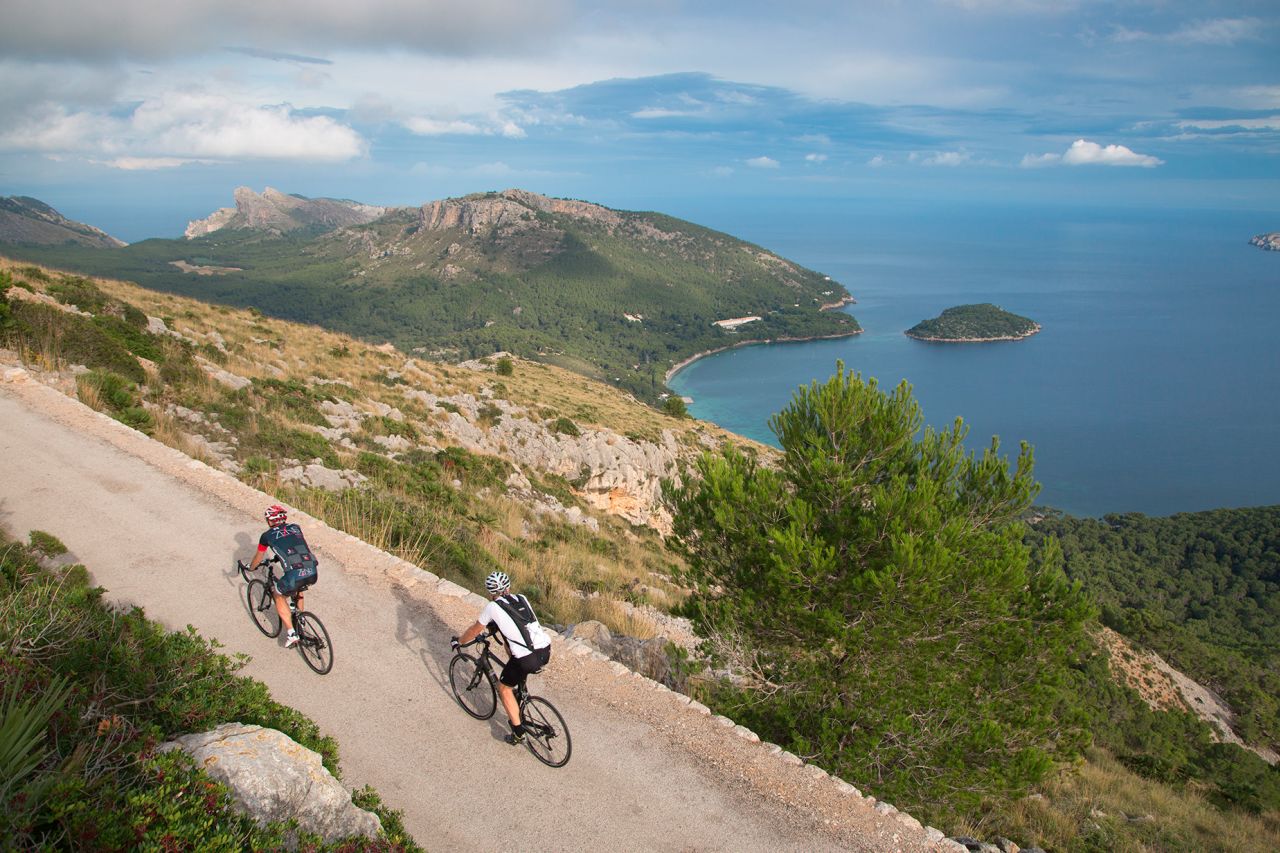
Mallorca locals will tell you that the Balearic island is best enjoyed outside of the exceedingly hot and hectic summer months. In October, temperatures are still in the 70s F (early 20s C), making it idyllic for cycling and hiking routes that skirt historic castles, lighthouses and quiet coves.
For an adults-only stay in a 17th-century mansion, Can Aulí in the northern Mallorcan village of Pollença promises a quiet escape with just 21 rooms. All the food served on site comes from a local farmer who delivers organic produce every morning from a nearby farm. When you’re up for some of the nightlife the island is famous for, try Lío Mallorca, a cabaret show and club which recently expanded from its original Ibiza location to Palma.
Thessaloniki, Greece
Greece’s second city sits on the Thermaic Gulf, opening onto the Aegean Sea. Famed for its vast culinary offerings, it’s also mostly bypassed by tourists from the US who swerve it for island-hopping to spots like Mykonos and Santorini.
Jack Ezon of EMBARK Beyond points to fall as a great time to visit Greece’s gateway city to the Balkans – not for its beaches but for “a great city rich in Jewish history” served up with one of southern Europe’s best dining scenes.
During October and November, venture out of the city to take in the changing leaves along the hiking trails near Mount Olympus, 90 minutes southwest of Thessaloniki.
Malta
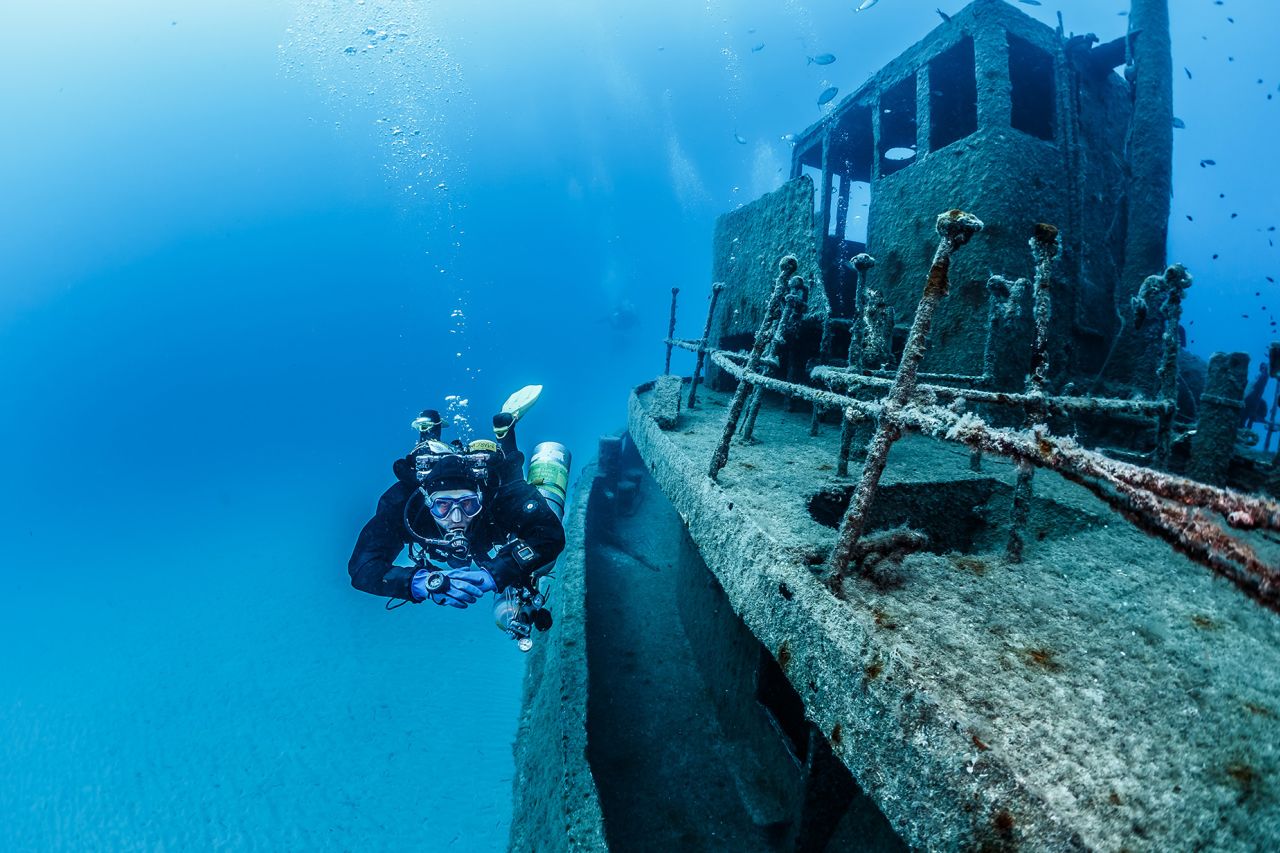
The Mediterranean archipelago of Malta – consisting of three inhabited islands, Malta, Gozo and Comino – is another summertime scorcher that’s far more pleasant to visit once temperatures drop. Malta is perennially popular with scuba divers who explore the many World War II shipwrecks lying offshore, as well as the Blue Hole – a 50-foot-deep tube-like rock formation filled by the sea, with an archway and cave at its bottom; and underwater visibility is clearer in the fall than during summer, says PADI spokesperson Samantha Pearson.
Valletta, Malta’s compact capital and a UNESCO World Heritage site, is at its most exciting during early October’s Notte Bianca festival. During the nighttime celebration, the city’s museums and palaces throw open their doors to host exhibitions and theater performances, while the city’s gorgeous plazas fill with music, dancing and food stalls.
Madeira, Portugal
The volcanic Portuguese island some 400 miles west of Morocco is best known for its fortified wines. But visit Madeira in the fall, and you’ll be there in time for harvest season in the many vineyards, falling hotel prices, and an ocean that remains balmy enough for a pleasant swim through October.
On the north coast, hike along the many levadas (historic irrigation canals) or visit the wine country wellness retreat at Terrabona, where villas and a vineyard sit high in the mountains. It opened in 2023.
In capital Funchal, Savoy Palace has a 17th-floor pool with ocean and mountain views. Shopping and nightlife are a few minutes’ walk away.
Baden-Baden, Germany
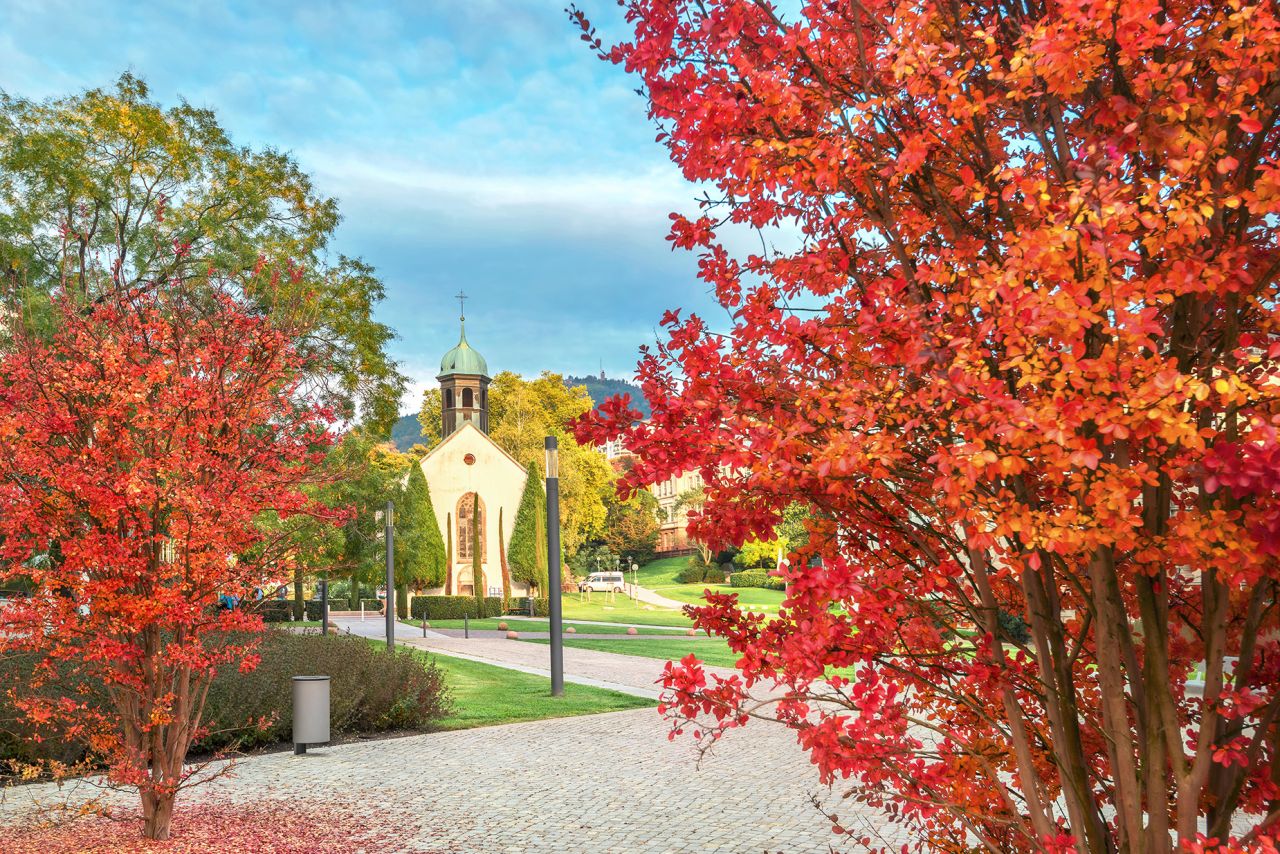
Germany’s former summer haven for Europe’s Belle Époque royals, politicians and writers, Baden-Baden arguably has even more appeal in fall, with epic views of the surrounding Rhine Valley and Black Forest as the leaves start to smolder with color.
Autumn’s temperatures are ideal for soaking your bones after a hike in Baden-Baden’s many thermal springs like the ones at Caracalla Spa or the Roman-Irish bathing oasis at Friedrichsbad, which first opened in 1877.
Fall also means it’s harvest time in Rebland – an area southwest of Baden-Baden famous for its Riesling. Stop into a winery like Nägelsförst to sample the wares, as well as local specialties like Zwiebelkuchen (onion tart).
Terry Ward is a Florida-based travel writer who lives in Tampa and tries to get to Europe in the off-season every chance she gets.
